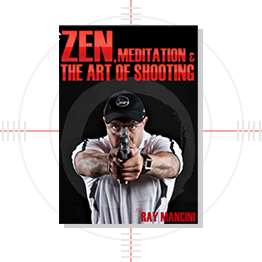Buddhism
What leads us to begin spiritual practice? For many of us personal crisis brings us face-to-face with human suffering. Perhaps our life feels hollow or meaningless somehow and we wonder if there isn’t more to it. Maybe we have encountered a serious illness or calamity or maybe a loved one has died.
Feelings of loss or emptiness will cause us to experience deep suffering. The inescapable truth of suffering was what drove the Buddha to seek and obtain enlightenment twenty five hundred years ago, and it motivates many of us to begin the spiritual search today. The mind that seeks the truth is called the Bodhi-mind. When life awakens Bodhi-mind with in us we embark on a journey to find the truth.
Who was Buddha?
In general Buddha means “awakened one”, someone who has awakened from the sleep of ignorance and sees things as they really are. Free from faults and mental obstructions. There are many people who have become Buddha’s in the past, and many people will become Buddha’s in the future.
The Buddha who is the founder of the Buddhist religion is called Buddha Shakyamuni. Shakya is the name of the royal family into which he was born, and “muni” means “able one”. Buddha Shakyamuni was born as a royal prince in 624BC in a place called Lumbini, which was originally in Northern India but is now part of Nepal. His fathers name was King Shuddhodana and his mothers name was Queen Mayadevi.
Twenty five hundred years ago, Shakyamuni Buddha did something crazy; he left his wife and child, his palace and kingdom, to start a long search. He must have been insane or desperate to find something. No one could begin such a search, leaving everything behind, without believing that something was terribly wrong, that something essential was lost or missing.
But was anything really missing? After all he was the Buddha Shakyamuni in the flesh! How could anything be lacking?
Apparently he didn’t yet know who he really was. He thought he was the prince Siddhartha Gautama, but he was driven to find something more. For him, there was no choice he had to leave on the search that would change his life.
We’re all have a lot in common with Siddhartha Gautama and his predicament, but at first glance we may not see it. Today we seem to be less open about this search than people who live in Ancient India, where it was fairly common to embark on a spiritual journey at some point in one’s life. In our society, we’re considered misfits if after adolescence we still don’t know who we are. If we admitted having doubts and questions. We might be labeled insane. Modern society has conditioned many of us to believe that such questioning is senseless and potentially harmful, and that we should be satisfied with simple answers; you are you, of course. We may not pay attention to our doubts or questions until something shakes us up. Maybe we hear some bad news, maybe someone close to us dies, but some critical life event forces us to at our deepest questions. Who am I? What is this life? Is there more to this life than I’ve already discovered? We begin a search for something we can count on, something genuine; what some of us call truth or Buddha.
Where can you find this Buddha or truth? Well, you might find a teacher to hang out with for a while, and a little teaching might even rub off on you. But if you believe that you’ve found someone or something to lean on besides yourself, in the end it won’t do you any good. You’ve got to find the Buddha for yourself. No one can do it for you.
Once we accept that we won’t find Buddha outside of ourselves, we usually get stuck in thinking that we will find it inside. “If Buddha is not out there, Buddha must be in here” as if there might be a little Buddha hidden inside, to be found if we just look hard enough. This is still dualistic thinking; and if we’re not paying attention, we can get stuck here for many years.
Along the way in the spiritual journey, it is easy to get sidetracked, and one of the most common dead ends is to spend the first ten years looking outside ourselves for some Buddha. It is easy to hold on to an image of some perfect being, especially of that person has died and can no longer uphold or tear down that image. If we imagine or believe that someone is perfect-even Shakyamuni Buddha- we can devote many years of our lives striving to become like that person. It’s a legitimate path, bit it doesn’t happen to be the Zen path.
There is a basic problem with striving to become perfect: you already are perfect! Now even if this is hard for you to swallow, I’m sure you can see the problem. If you’re already perfect but you’re striving to become perfect, what’s extra? The striving! Striving implies that something is missing: you feel incomplete in some way, discontent with who you are. You want to become someone different from yourself. If you are trying to become a Buddha, or if you are trying to realize that you are already a Buddha, either way, you are still stuck in striving. Those goals are based on deluded, dualistic thinking. Buddha’s realization was very clear: desire causes suffering-any desire, even the desire for realization. So if you strive for realization, you will create more suffering for yourself.
It’s not easy to admit that we create our own suffering, especially when it comes to our spiritual desires. Of course, the desire for enlightenment is only one of many sources of suffering, and maybe it’s a small desire compared with others. Still, try to imagine what would happen if you took all your desires and seeking and focused them entirely on the desire to attain realization. That’s exactly what Siddhartha Gautama did. He went for it: he spent six years pursuing the major spiritual practice of his time, he tried different kinds of meditation and yoga, fasting and other ascetic practices, he even explored various occult powers. Apparently he was very gifted intelligent, talented, handsome and athletic and when he put his body and mind into practicing these different paths, he mastered each one of them. But in the end he still had no answer to the basic question that was driving him insane. After all those years of striving and accomplishing, he came up empty handed. That’s when he became really desperate.
The same question drives you and me, but we can ask it in many different ways. Some of us ask us how to end suffering. Some of us wonder about the true purpose or meaning of life. Despite all his struggles with this question, Buddha has not found an answer. In despair, he just sat down. He gave up striving and decided to sit there as long as it took to find the answer. He vowed to sit in Zen until he had realized the cause and end of suffering.
What a joke just look at the guy. First of all, he gives up everything his family, his wealth, and his power; then he spends a bunch of years wandering around a s a beggar pursuing a question he can never answer. Finally, he sits down under a tree and refuses to get up. People probably though he was nuts. And in a way, he must have been. Siddhartha must have been a little crazy to vow to the universe that he would resolve the irresolvable question of suffering.
He just sat there. On the dawn of the eighth day, he glanced up and saw the planet venues. He must have been in some altered state, not what we would think of as a rational state of mind. But which irrational state of mind was it? Do you have it? Would you and I be in the same irrational state of mind if we sat for days and days? Although we have the potential to enter the same state of mind as the Buddha, it is something that most of us never experience. Instead we lock it away, deep inside. We are afraid to let go of our rational state of mind and experience the mind of Shakyamuni Buddha, the mind that goes beyond sanity and madness.
Society has taught us that we should never let go of our rational mind that all kinds of terrible things could happen if we do. We might loose control. Of course, it would be stupid to sit down on some street corner and go out of control; there are definitely better places to try this. There is a rumor going around that there are places where people think that loosing control is actually quite sane. These places let you sit down for thirty minutes a week or as long as you want and give up control. At a Zen centre, nobody will think you are weird if you sit down and let your mind go. It’s the Zen thing to do. In fact you’re encouraged to confront and break through your fear of letting go of the rational mind so that the irrational mind of the Buddha can reveal itself.
Only after we let go do we discover how diluted we have been. What we thought of as me does not really exist to the ego that discovery feels like death, so of course it resists. If we want to find the courage to continue the search anyway, the desire to know has to become more important than the fear of death. Who am I? To resolve that question once and for all, is to realize your true nature, your true mind. This mind that we seek has neither limits nor boundaries. This mind has always been and will always be, from the beginning-less beginning to the endless end. Obviously it is more than just my mind or your mind. Realizing this mind is liberation itself: we are liberated from the fear of loosing control, from loosing our identity, and from loosing our ordinary mind. We liberated from the fear of loosing anything, including the self. When we are everything and everyone, how could we possibly fear any loss? But don’t believe me. Discover this mind for yourself. To simply believe the teaching is like counting another persons treasure. What good does it do you if it’s not your own? Siddhartha Gautama became the Buddha when he realized this mind. He was liberated instantaneously, and at the same time, he saw how all beings could be liberated from suffering. he discovered the path to liberation. This was a profound discovery, yet how the Buddha achieved it is not really a mystery. He knew the path because he had walked it himself and he realized it. Buddha knew the path intimately. Out of compassion he devoted the rest of his life to sharing the map with all of us.
Siddhartha started out just like you and me: he was confused. He didn’t know that he was whole and complete, perfect to begin with, so he started searching for something. He had the same basic question that each and every one of us has, but maybe we don’t yet dare to look at it. We can see where that question will lead us to a realization that society won’t except. Maybe we wish the path could be mad more appealing somehow, or even marketable, like a quick fix. Never the less we cant deny what is true: the path to liberation, freedom, and enlightenment is the same for everyone. Buddha’s path has been tried and tested for more than twenty five hundred years. It was Buddha’s path it is our path.
We have good reason to feel encouraged and hopeful about the journey. It is possible to sit zazen like Siddhartha and to attain the same realization. How can we know this is true? It would be nice to have some sort of guarantee that once we start on this path we are certain to end up at the same place as Siddhartha; but if we want to know beyond a shadow of a doubt that my path is the same as Buddha’s we have to walk it. Only then can we move beyond hoping and guessing to true knowing, much deeper than any understanding. You will know because the Buddha’s experience has become your own.
Enlightenment means that you have directly experienced your true nature, your intrinsic perfection and wholeness. But that doesn’t mean you have some how gotten rid of your imperfections and became a perfect being. Realization lets you see perfection and imperfections simultaneously. When you can review your imperfections from the place of knowing your intrinsic perfection, your life is forever changed. Then, as you continue along the path and experience the view more clearly and directly, you become more and more confirmed in your perfection. You will see that your perfection is always present, whether you striving for it or not.
Every person has the potential to realize for himself or herself the same Heart-Mind as the Buddha, but not everyone will choose to embark on the search. For some, the desire is not strong enough. But let’s say that you have decided to step onto the path. There’s a little problem, a paradox you will have to confront: if you strive for realization, you will cause more suffering for yourself. On the other hand, an important shift will occur: you will be able to place the cause of your suffering where it belongs on yourself. There really no one else to blame. You can choose to suffer in order to accomplish the way. It’s OK if you harbor some hope that there will be a way out of your suffering or tell yourself “If I choose my suffering and stop resisting it, then may be I won’t suffer anymore.” Unfortunately it doesn’t work that way. If you decide to take up the search, you will suffer.
Well, then what about the liberation from suffering that we’ve heard about? Didn’t the Buddha say that there was a way to end all suffering? if you say “yes” you leave out “no”. and if you say “no” you leave out “yes”. Either way, you have only half of the truth. To have the whole truth, you need to hold both answers simultaneously. Yet only an irrational mind says that “yes” and “no” can be true at the same time. That the same irrational mind is your mind, the Mind of Buddha. And just like Siddhartha, we have forgotten who we really are. Although Buddha showed us the way, we will never be satisfied until we have discovered the answer for ourselves. Each one of us has to step onto the Path and search until we remember who we are.
Ray Mancini
Training Courses
Pro-Shop Products
A revolutionary system shot shell pouch, which provides fast drawing of 2/4 shot shells at the same time and immediate reloading of the gun. As the springs are made of hardened metal, the retention don't change. Rotating clip can be positioned by the shooter individually. PRO8 up to 8 shotshells in the same holder to reduce the space on the belt.
The New Magnetic IPSC magazine was designed with the IPSC shooter in mind The Magnetic system is available in three versions for unlimited choice of carry options. For stationary matches you can use the MAG1, for running matches with higher risk of losing a magazine you can use the MAG 2. The MAG3 combines the IPSC pouch with the magnetic system to quickly add a spare magazine without losing another inch of belt space.
Magazine pouch made of ABS is very high impact resistant. An internal tension spring holds the magazine firmly inside the pouch. Thanks to a reduced spacer and size it is ideal for concealed carry – both for police, military as well for sport (IDPA, IASC and ACTION SHOOTING).
The EVOLUTION of the famous AMADINI Ghost SphereSystem has resulted to the Super Ghost ULTIMATE. This holster is the fastest, safest and most innovative IPSC holster in the world. Copied by many, equaled by none, the Ultimate is the choice of shooters all over the world. Fully free-floating, adjustable in tilt, height and distance from your body, the Ultimate can be made to fit your needs 100%. The locking mechanism is the safest and fastest on the market and allows…
The new 360° Universal Ghost Magazine Pouch is supplied with two cups for vertical or horizontal carry, internal retention of the magazine and gives complete carry freedom and flexibility due to the rotating speed clip. Different types of retention springs are available to ensure the best suited retention for your needs. The cups are also equipped with a system to remove all magazine movement inside the pouch.
Enables use of the holster for concealed carry. The module positions the holster close to the body without the use of a special belt.











